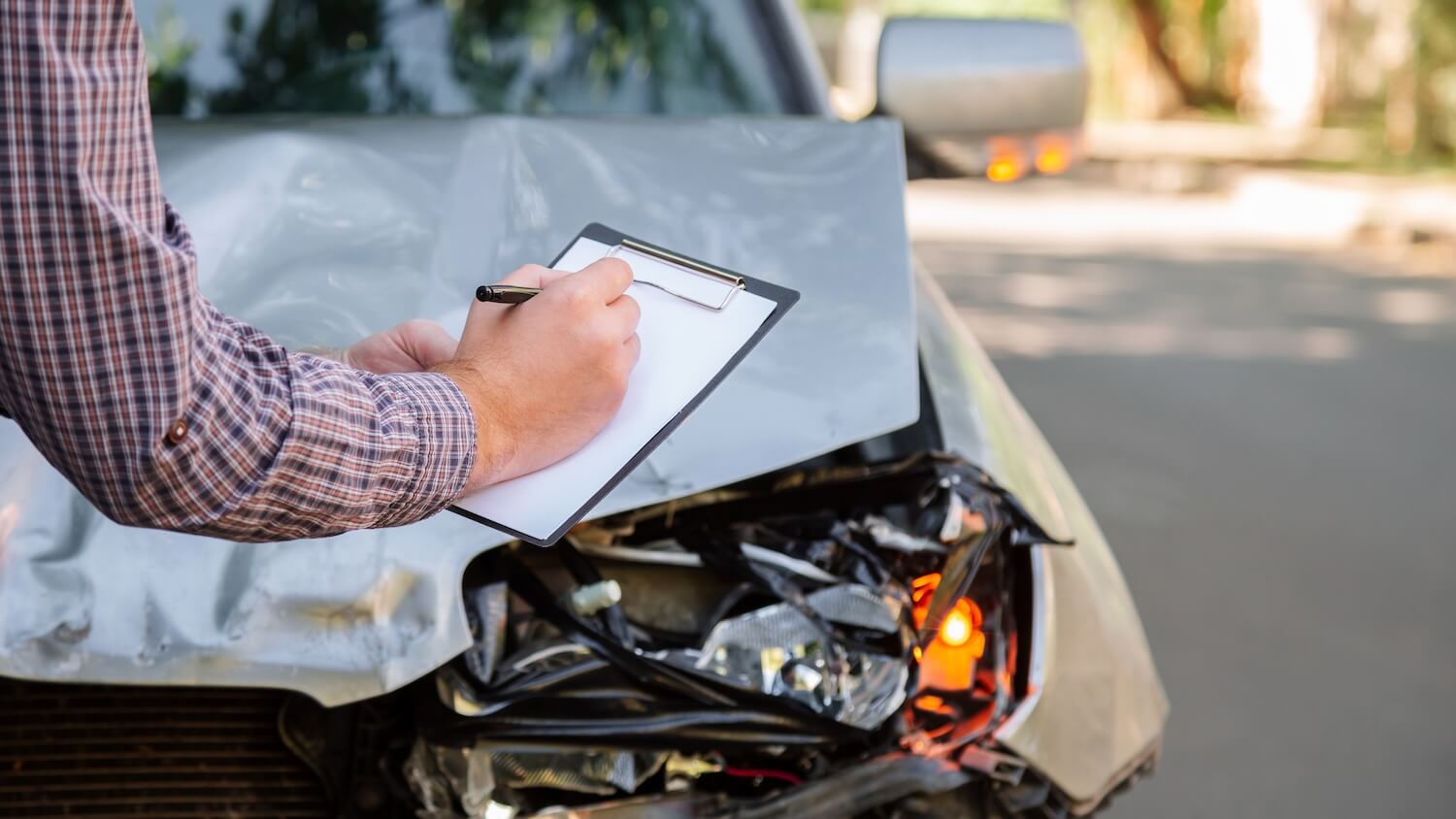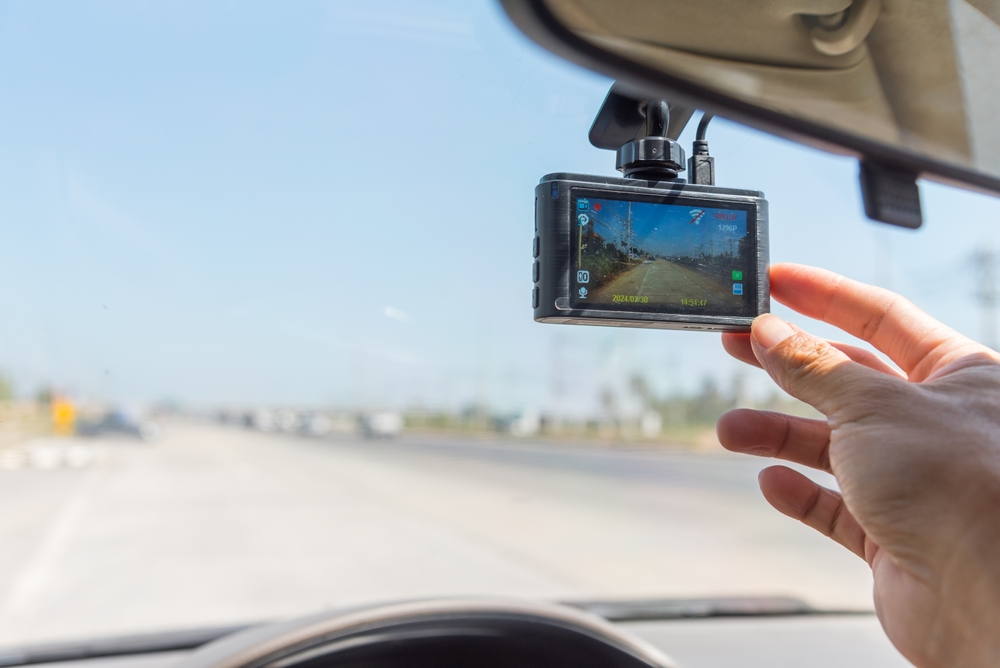What to Do If the At-Fault Driver Doesn’t Have Insurance

Written by Matthew Weidinger

When someone is involved in an accident caused by an uninsured driver, it can create confusion and financial stress. The key step is to use your insurance, particularly uninsured motorist coverage, to cover damages and medical expenses. This coverage exists precisely for situations where the at-fault party lacks insurance.
If uninsured motorist coverage isn’t available, the affected person may need to explore other options, such as filing a claim through their health insurance or pursuing a lawsuit against the at-fault driver. Understanding these options early can help avoid costly delays and make recovery smoother.
Immediate Steps After an Accident With an Uninsured Driver
After an accident involving an uninsured driver, certain actions are critical to protect legal rights and ensure proper documentation. These include securing safety, gathering thorough evidence, and notifying law enforcement promptly.
Ensure Safety and Notify the Authorities
The first priority is to check for injuries and move to a safe location if possible. If anyone is hurt, emergency medical services should be called immediately.
Next, the parties involved should contact the police, even if the accident seems minor. Reporting the incident creates an official record that may be necessary when dealing with insurance companies or legal claims.
Avoid admitting fault or discussing the details of the accident extensively at the scene. Instead, focus on cooperating with authorities and keeping yourself and others safe.
Document the Scene and Collect Evidence
Carefully gather as much information as possible at the scene. This includes taking clear photos of vehicle damage, license plates, road conditions, traffic signs, and any visible injuries.
It’s important to write down or record the other driver’s name, contact information, and any witness statements. A detailed account will help support claims later, especially since the other party lacks insurance.
If available, use a smartphone or camera for images and videos. Organized, accurate documentation strengthens the chance of receiving compensation through alternative legal channels.
File a Police Report Promptly
Filing a police report quickly is essential for record-keeping and future legal processes. The report should accurately reflect the facts as observed, including the uninsured status of the other driver.
Request a copy of the report for personal records and insurance claims. This formal documentation is often required by your insurer or for pursuing compensation through your uninsured motorist coverage or legal remedies.
Timely filing helps avoid disputes over the accident details and ensures that evidence is preserved officially.

Utilizing Your Insurance Coverage
When the at-fault driver lacks insurance, a policyholder may still recover damages through their own coverage. Certain types of insurance specifically address this situation, allowing claims without relying on the other party’s policy.
Understanding Uninsured Motorist Coverage
Uninsured Motorist (UM) coverage protects policyholders when struck by a driver with no insurance or insufficient coverage. It typically applies to bodily injury expenses, including medical bills and lost wages, not always property damage.
UM coverage is optional in some states and mandatory in others. It acts as a safety net to reduce out-of-pocket costs after accidents caused by uninsured drivers. The insured must notify their insurer promptly and provide details about the accident for claim processing.
Filing a Claim Through Your Own Policy
To file a claim, you should contact your insurance company as soon as possible. You must provide the accident report, details of the uninsured driver (if known), and any medical records or repair estimates.
The insurer will investigate to confirm the other driver’s uninsured status. Delays or incomplete information can slow the claim process. It’s important to keep copies of all documents and communications during this time.
Benefits of Uninsured Motorist Protection
This coverage covers medical expenses, pain and suffering, and lost income when the at-fault driver cannot pay. It can also cover hit-and-run incidents if the driver remains unidentified.
UM protection helps avoid financial strain by covering costs that would otherwise come from the insured’s pocket. It can also provide peace of mind, knowing recovery is possible even if the other driver lacks insurance.
Legal Actions and Professional Support
When an at-fault driver lacks insurance, victims must explore specific legal options and compensation paths. Professional guidance can clarify complex legal processes and improve the chances of recovering damages.
Personal Injury Compensation Options
In cases involving an uninsured at-fault driver, compensation often comes from uninsured motorist coverage if the victim’s policy includes it. This coverage compensates for medical bills, lost wages, and pain and suffering.
Victims may also seek compensation through a personal injury lawsuit against the at-fault driver directly. However, collecting damages requires proving fault and the driver’s financial ability to pay.
Other sources might include state victim compensation funds or government assistance programs, but these are usually limited and vary by jurisdiction.
Pursuing Legal Action Against the At-Fault Driver
Filing a lawsuit against an uninsured driver is a common legal action to recover damages. This process involves gathering evidence such as police reports, medical records, and witness statements. The court then determines liability and awards compensation if the victim proves the driver’s fault. However, many uninsured drivers lack sufficient assets to cover damages fully.
Legal actions can be time-consuming and costly, so victims must weigh the potential benefits against their expenses and time involved in pursuing the claim.
How Smith & Weidinger PLLC Can Assist
Smith & Weidinger PLLC specializes in cases involving uninsured or underinsured drivers. We help victims evaluate all compensation options and navigate insurance claims efficiently. Our attorneys handle communication with insurance companies and manage the legal paperwork required for pursuing lawsuits. This reduces the stress and uncertainty for victims.
We also assess the at-fault driver’s financial situation to advise on the viability of a lawsuit, maximizing chances for fair compensation while minimizing unnecessary expenses.
Navigating Legal Complexities With Expert Guidance
Legal claims involving uninsured drivers often involve complex insurance laws, state regulations, and court procedures. Expert legal counsel helps victims understand their rights and obligations.
Our professionals guide clients through filing claims, meeting deadlines, and presenting evidence effectively. They anticipate counterarguments from insurance companies or the opposing party.
This guidance ensures that victims do not miss critical steps that could jeopardize their compensation claims and provides strategic advice tailored to each case’s unique circumstances.
Note: The information provided in this blog post has been compiled from publicly available and secondary sources. While we strive for accuracy, some details may become outdated or contain inadvertent errors. If you believe any information is incorrect or requires updating, please contact Smith & Weidinger so that we may review and make the appropriate corrections.
Disclaimer: This blog post is for informational purposes only and is not intended as a solicitation for business. The photo used is not from the scene of the incident described. Viewing this content does not create an attorney-client relationship with Smith & Weidinger. If you have been injured in an accident, please seek immediate medical attention and then consult with a qualified attorney to discuss your legal rights and options.










